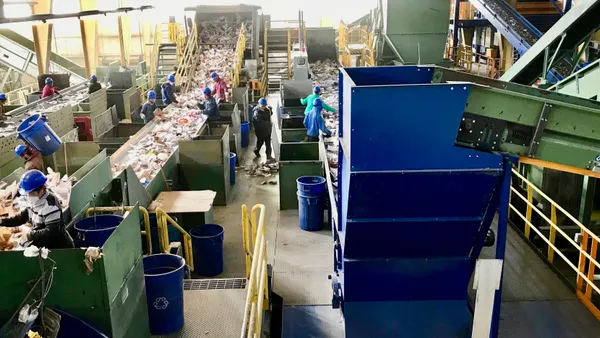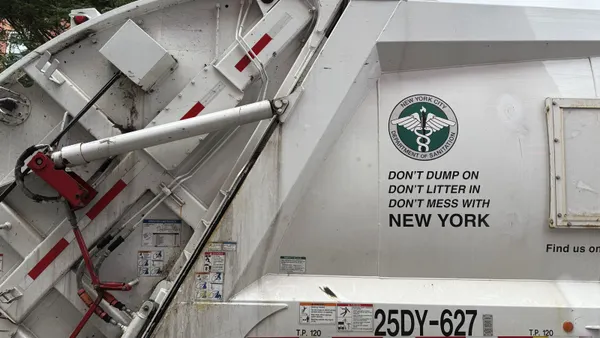Dive Brief:
- In an effort to cut down on marine litter, Indonesia is considering a 1.4-cent (U.S.) tax on certain plastic containers. This would include plastic bottles and eventually other food containers. Lawmakers will debate the proposal in June.
- The country already passed a smaller tax on plastic bags for supermarkets and convenience stores in 23 cities that took effect earlier this year. Supermarkets now use 25% fewer bags.
- A recent Ocean Conservancy study said that Indonesia is the second-largest generator of ocean plastic waste in the world after China.
Dive Insight:
Waste has become a growing problem in Indonesia, and the country is expected to generate 67 million tons of it by 2019 — a 5% increase from 2014. Plastic is expected to make up 15% of this waste. Many residents boil their water to avoid health hazards, though as incomes rise they've started turning to bottled water and other beverages instead.
If Indonesia does pass the tax it would be a rare step. While container deposit programs exist in many parts of Europe, Australia, and North America, any type of tax or fee is much less common in the rest of the world.
Using a different approach to changing the destination of its waste, Indonesia has also seen success with its "trash banking" system. The country has more than 2,800 trash banks in 129 cities where residents can exchange certain recyclable items for money. With the majority of waste still going to landfills, this system has become beneficial for diversion and local economic development.










